-
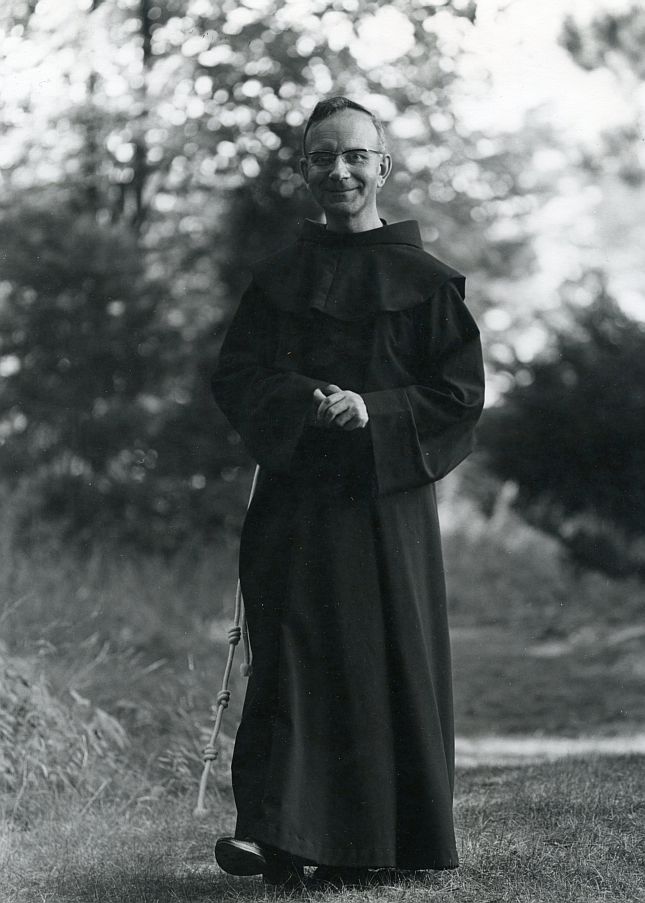
Father Leonardas Andriekus at Kennebunkport, Maine. Photo by Algimantas Kezys.
After the general election held at the end of 1969, the Board of Directors moved from Chicago to New York. Members of the new board were Leonardas Andriekus, Paulius Jurkus, Jurgis Jankus, Algirdas Landsbergis, and Nijolė Mazalaitė. Leonardas Andriekus, a Franciscan priest since 1940, who became the provincial of the Lithuanian Franciscan Fathers in the US in 1964, agreed to chair the board. Jurgis Jankus, who served as teasurer, wrote to him: “It’s very good that you agreed to take the responsibilities of chairman on your already burdened shoulders. My thought was that since you travel a great deal in the course of your work and meet many people, including writers, it’s faster and easier to handle the LWA’s on-going business in person, rather than by letter ...” (An excerpt from a letter by Jankus to Andriekus, March 18, 1970)
-
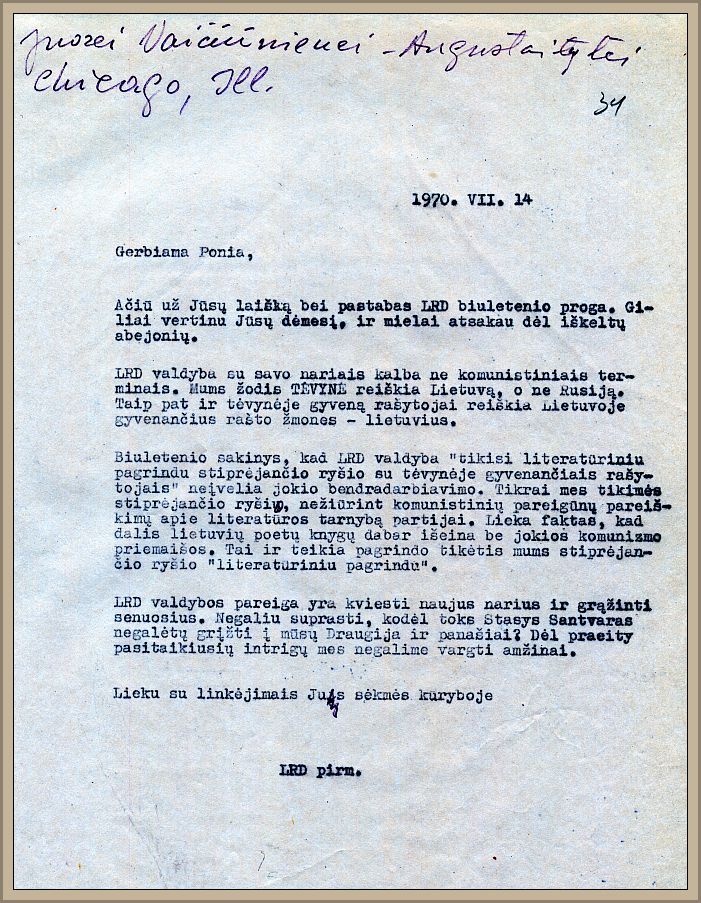
Andriekus’ reply to Vaičiūnienė-Augustaitytė’s criticism regarding the ties with Lithuania, July 14, 1970.
The new board identified its goals and objectives in its first bulletin, Announcements, published on May 28, 1970. One of the most important goals set by the board – to pursue increasing contacts related to literary matters with writers in the homeland – received comment and criticism, both public and private. Almost immediately after the bulletin appeared, J.L. Vaičiūnienė-Augustaitytė wrote a letter to Andriekus, criticizing the LWA for its goal “to strengthen relations” with the homeland, or with the Soviet Union, according to the letter writer. Andriekus fended off her sharp criticism in a letter dated July 14, 1970, in which he briefly and tactfully responded to all four points that she made.
-
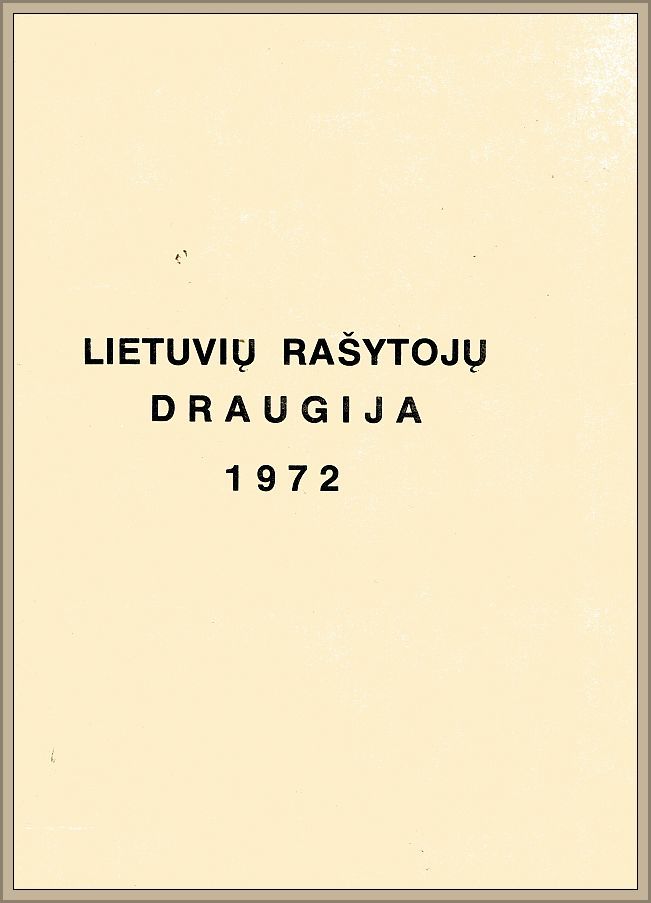
Cover of the booklet “Lithuanian Writers' Association 1972,” edited by Leonardas Andriekus (Brooklyn, NY: Lithuanian Franciscan Press, 1972).
After assuming leadership, Andriekus asked the former LWA president Baronas to familiarize him with the organization’s statute. The new chairman felt that he was obliged not only to be better informed about the inner workings of the organization, but also to review them and, if necessary “to adapt them to the conditions of exile.” The newly revised statute was printed in a separate publication Lithuanian Writers' Association 1972, edited by Leonardas Andriekus. The16-page booklet provides a brief history of the LWA, its statute, and the regulations for the Literature Award. A list of the Association’s current membership, consisting of over 80 names, was provided at the end.
-
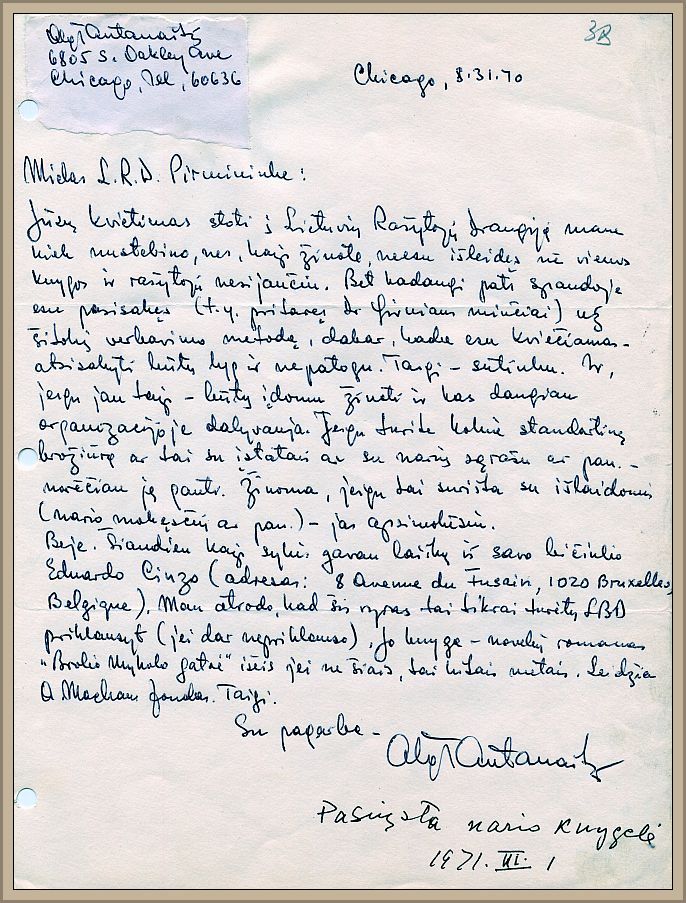
Reply from Antanaitis to the chairman’s invitation to join the organization, August 31, 1970.
The new chairman concerned himself not only with maintaining the existing membership, but also with increasing it. He took the initiative to invite writers and critics of the younger generation to join the Association: Julia Švabaitė (Gylienė), Marija Saulaitytė, Liūnė Sutema, Ilona Gražytė (Maziliauskienė), Eglė Juodvalkė, Vitalija Bogutaitė, Kęstutis Keblys, Rimvydas Šilbajoris, and others. Algirdas Titus Antanaitis, who was active in the Lithuanian press, also received an invitation from Andriekus. Though he had not yet published a book and as he himself noted, “did not consider himself a writer,” he had reviewed numerous literary works for magazines and newspapers. In addition, Andriekus took the initiative of welcoming back such writers as Petronėlė Orintaitė and Marius Katališkis, who had left the Association earlier. In 1979, the chairman extended an invitation to Tomas Venclova, the dissident poet, who came from Soviet Lithuania in 1977 at the invitation of UC Berkeley, thanks in great part to the efforts of Czesław Miłosz.
-
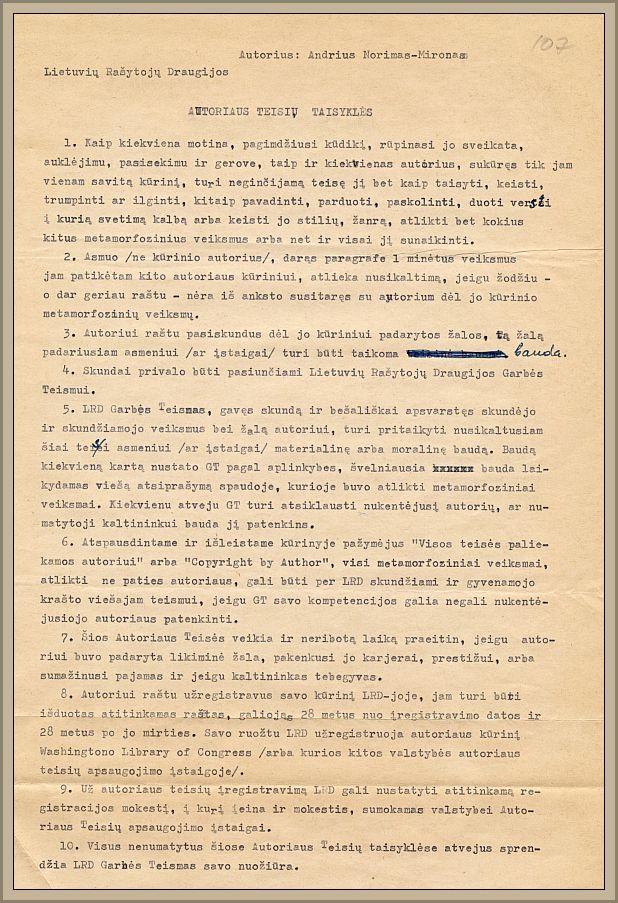
“Copyright Rules“ prepared by the LWA member Andrius Norimas-Mironas.
Under Andriekus’ leadership, the Board of Directors formulated and published rules of copyright, assuming the role of a copyright validator and registrant.
-
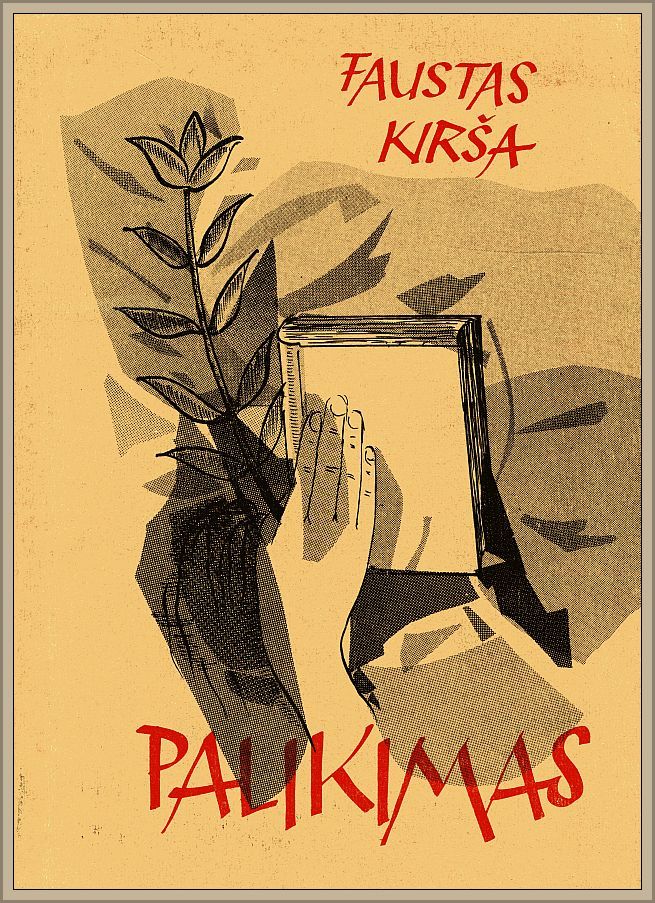
Faustas Kirša’s “Legacy” (Boston: Lithuanian Encyclopedia Publisher, 1972), compiled and edited by Stasys Santvaras.
The book Palikimas [Legacy], consisting of unpublished works and texts by Faustas Kirša, came out in 1972. Stasys Santvaras had begun to compile and edit it during Aloyzas Baronas’s term. The introduction was written by the current LWA chairman Andriekus.
-
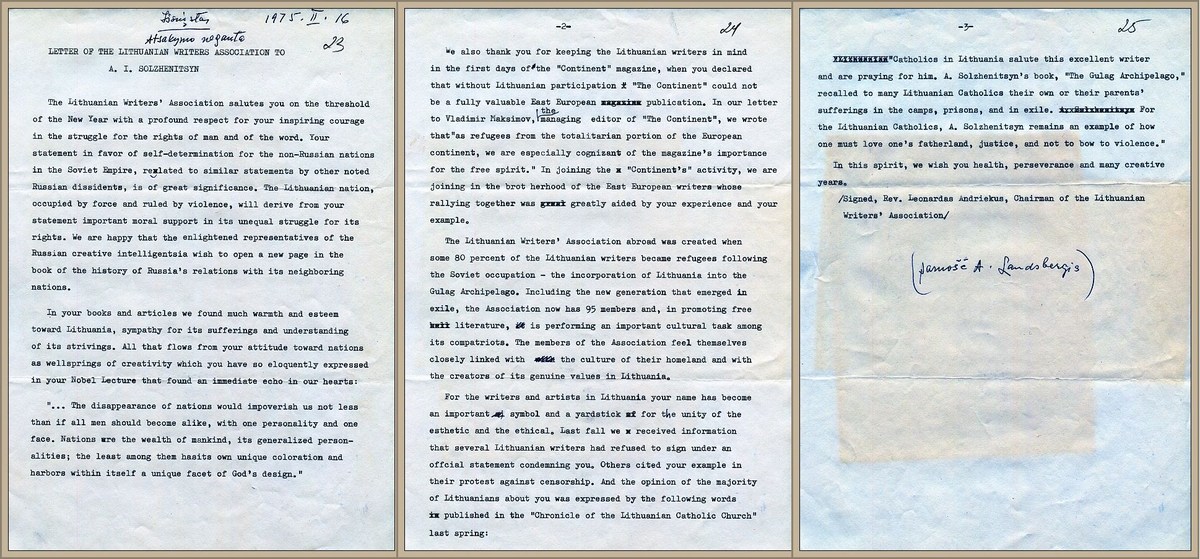
Letter to the writer Aleksandr I. Solzhenitsyn, February 16, 1975.
Like his predecessor, Andriekus supported the Association’s relations with writers of other countries and literary organizations, such as the PEN Club. While Andriekus was chairman, writer Algirdas Landsbergis, vice-president of the board, was responsible for maintaining these relations. He wrote a letter on behalf of the LWA in 1975, to Aleksandr I. Solzhenitsyn, thanking the Nobel Prize laureate of 1970 for supporting the Lithuanian nation and voicing the opinion that non-Russian nations in the Soviet Union have the right to decide their own fate.
-
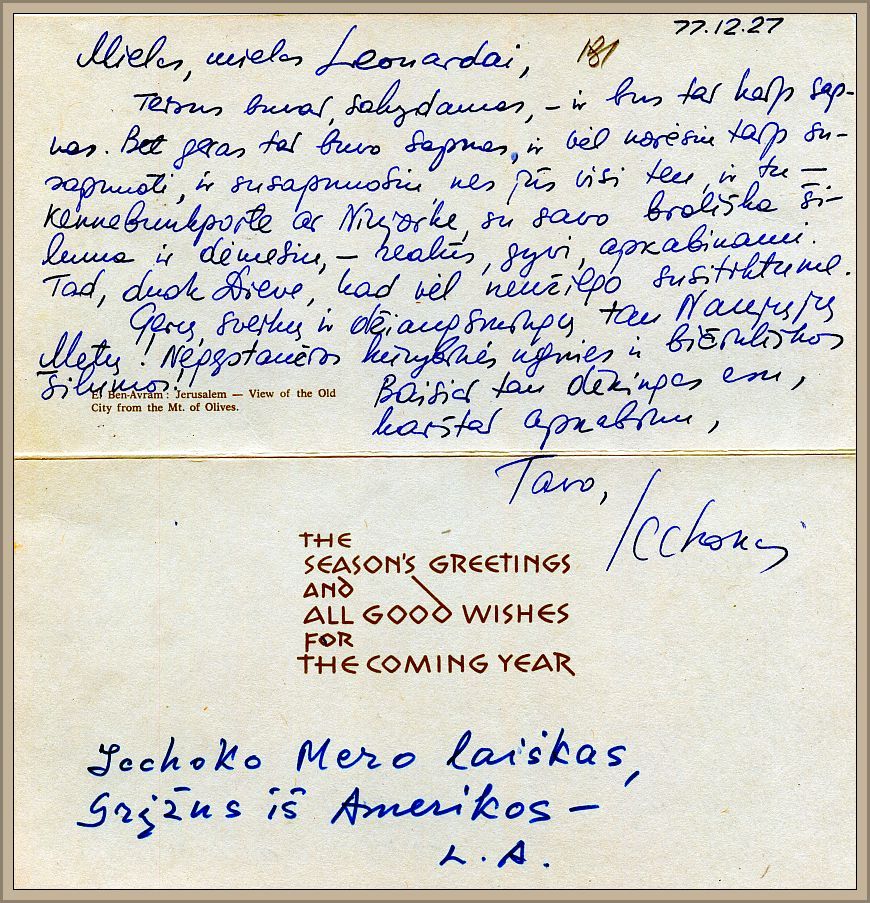
A thank-you letter from Icchokas Meras to Andriekus, chairman of the Association.
The Board of Directors not only declared its goal of firmer ties with the writers in Lithuania, but also attempted to put it into practice. Icchokas Meras, the Lithuanian Jewish writer, received a very warm reception from the LWA during his visit to America in 1977. He had immigrated to Israel in 1972, under increasing pressure from the KGB authorities.
-
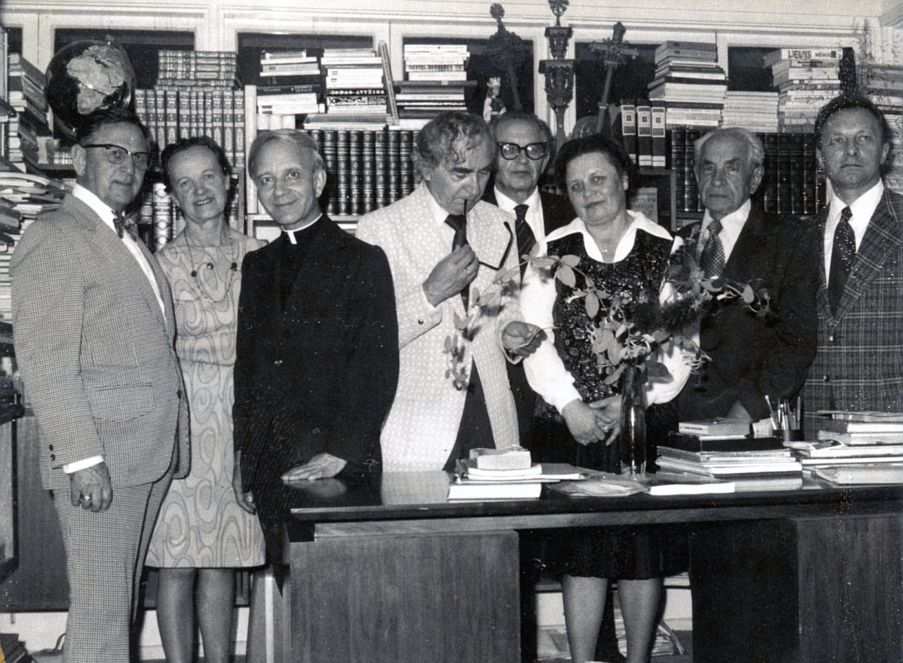
California LWA members with chairman Leonardas Andriekus, 1974. From left: Andrius Mironas, Alė Rūta, Fr. Leonardas Andriekus, Bernardas Brazdžionis, Bronys Raila, Elena Tumienė, Juozas Švaistas, and Alfonsas Gricius.
Andriekus carried out his duties as chairman for a decade. He turned over the position to Bernardas Brazdžionis in 1980.
Audio: The poet Kazys Bradūnas reads Leonardas Andriekus’ greetings to the participants of the Poetry Days in Chicago in 1977: https://soundcloud.com/lituanika/leonardo-andriekaus-sveikinimas-cikagos-poezijos-dienu-dalyviams
